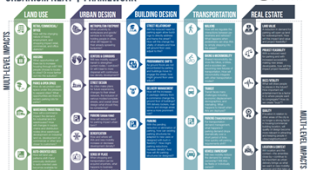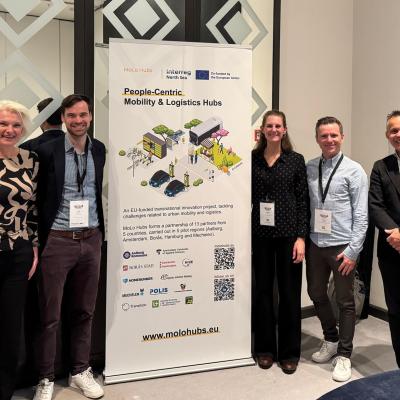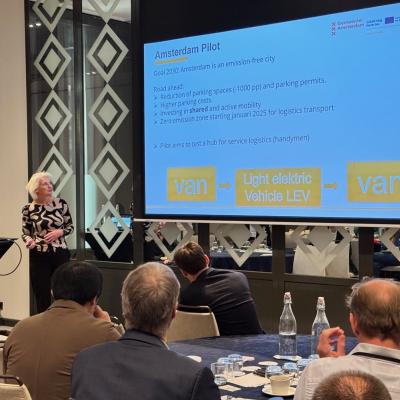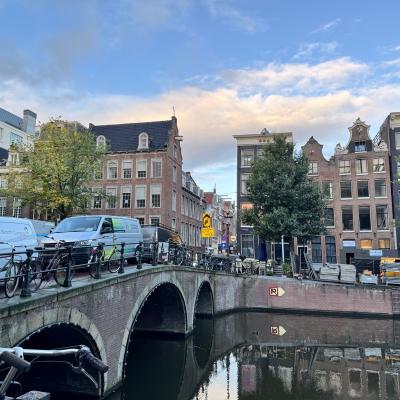Emerging technologies in people-centric cities
From 9-11 October, the Urbanism Next Europe Conference was held in the inner city of Amsterdam at the Krasnapolsky Hotel.
Urbanism Next explores the impacts of emerging technologies on land use, urban design, building design, transportation, and real estate and the implications of these impacts on equity, health and safety, the economy, and the environment (as presented in their framework).
Urbanism Next Center is part of the Sustainable Cities Institute at the University of Oregon which works together with other communities worldwide on research, events, education and outreach.
Find out more about the University >>
The Urbanism Next Europe Conference 2024 was organised in collaboration with three knowledge institutes in the Netherlands: TU Delft,TNO and AMS Institute.
Find out more about the conference >>
The conference was very well organised with inspiring keynote presentations, a variety of workshops and site visits and an interesting mix of people. Next to technological innovation, the conference emphasized the importance of empathy and equity in urban developments.
A delegation of the MoLo Hubs Project organised a workshops focused on People-Centric Mobility & Logistics Hubs:
- Joris Beckers, University Antwerp, shared an introduction in urban transport and the need for multifunctional hubs
- Thomas Brauner Logistics Initiative Hamburg, explained the approach of MoLo Hubs and the five pilots
- Susanne Balm, Amsterdam University of Applied Sciences, presented the questions that are addressed within the cross-cutting topic Spatial Planning and City Design
- Amber van Stijn, City of Amsterdam, presented the Amsterdam pilot:
"A Hub for Service Logistics"
We received a diverse group in our session with people working at a governmental organisation, knowledge institute, NGO or private company. Participants brought backgrounds in personal mobility, logistics, building design and urban planning, representing regions from Europe, North America and Asia. Most of the questions asked and the discussions that followed with the audience related to change: who pushes the innovation? How to stimulate behavioural change? What is the driver for change?
We will follow the planning of the succeeding Urbanism Next Conferences as we would be happy to share our intermediate and final results of MoLo Hubs for this community in the coming years.
Source: Amsterdam University of Applied Sciences
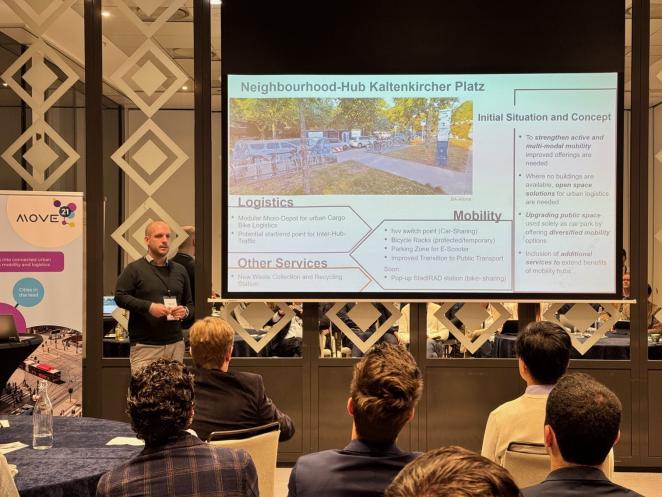
Neighbourhood-Hub Kaltenkircher Platz, Hamburg
Our cooperation project MOVE21 was also represented at the conference at the session: "Mobility Hubs for People and Goods –Benefits and Challenges From Public, Private, and Community Perspectives". This session offered insights from experiences of Oslo, Gothenburg, and Hamburg, who have set up a variety of types of mobility hubs within the ‘MOVE21’ Horizon2020 project.
MOVE21 is an innovation project funded by the European Commission. It aims at transforming European cities and their surroundings into smart zero emissions nodes for mobility and logistics.
Julian Sahr, Project Manager, City of Hamburg, District Hamburg-Altona, presented the pilot location "Kaltenkircher Platz" in Hamburg, which is a "multi-functional ‘neighbourhood hub’ for mobility and logistics as well as social/cultural aspects.
This pilot location is operated jointly by MOVE21 and MoLo Hubs. While MOVE21 tests a microhub for cargo bikes at this neighbourhood hub, within MoLo Hubs our Project Partner Stadtreinigung Hamburg will set up an EcoHHub - a neighbourhood collection point to be used as an intermediate stage between the collection at its source and the recycling centres.
Find out more about "Kaltenkircher Platz" >>

